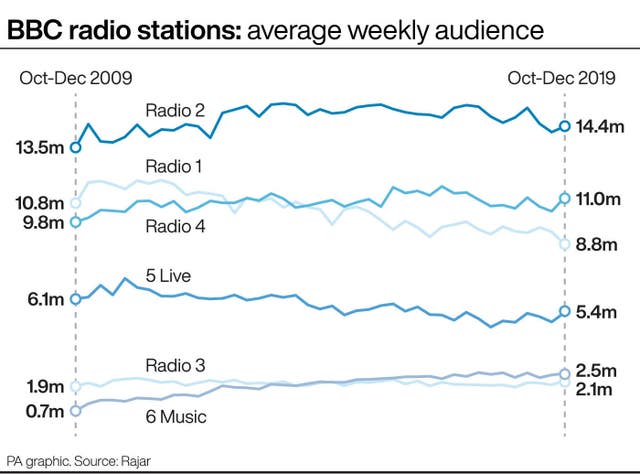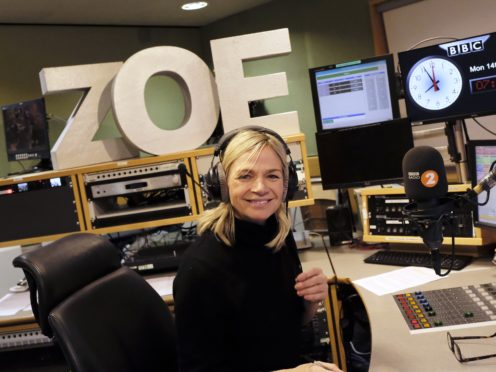The BBC’s Radio 2 Breakfast Show has shed nearly a million listeners in the first year since Zoe Ball replaced Chris Evans as presenter.
The early-morning slot drew 8.2 million weekly listeners in the final quarter of 2019, compared to the 9.1 million weekly listeners who tuned in during the final quarter of 2018, before Evans bowed out on Christmas Eve.
Numbers for Ball’s show were up since the last quarter, when she pulled in 7.9 million weekly listeners in the third three months of the year, according to the audience research body Rajar.

Evans, who premiered his breakfast show for Virgin Radio in January 2019, saw a slight increase in his audience, pulling in 1.2 million weekly listeners, up from one million when he started.
Greg James’s breakfast show on Radio 1 saw a drop in listeners, falling from 5.1 million at the end of 2018, to 4.8 million at the end of 2019.
This accompanies a general decline in listeners across the whole of Radio 1’s programming, as it recorded its lowest-ever figures for the station since comparable numbers began, falling to 8.8 million weekly listeners.
This marks a significant fall from its peak of 11.9 million in the third quarter of 2011.
This is the first time the figures have slipped below nine million weekly listeners.

Meanwhile, Radio 4’s Today programme recovered some of the ground it lost earlier in the year as it reached 7.2 million weekly listeners in the fourth quarter of 2019, compared to 6.6 million last quarter and 6.8 million in the fourth quarter of 2018.
This returns the the flagship news programme’s listenership to roughly where it was at the start of 2019.
The BBC in general also received a boost as its share of listeners climbed back up over 50%, after dropping below that number for the first time earlier last year.
All BBC stations drew 51% of the total audience in Q4 of 2019, up from 49% in Q3.
The corporation’s radio audience in the 15-44 age bracket also grew, up to 36% from 34% the quarter before.

There was particular success for BBC Radio 4 Extra, which drew a record weekly audience of 2.3 million in the final quarter of 2019, and BBC Radio 3, which had its biggest audience since 2016, pulling in 2.1 million listeners.
James Purnell, director of BBC radio and education, said: “Our brilliant stations are much loved by our audiences and in this quarter we’ve seen some strong numbers for our speech stations, including a record for Radio 4 Extra.
“The latest figures show some of the challenges we face across the radio industry with retaining a live listening habit amongst young people, whose audio consumption is rapidly changing.
“We are focused on keeping live listening strong and looking for new ways to do so, but we also want to ensure we offer more for our audiences however they want to listen.
“During this quarter alone, we saw more than 100 million on demand plays of our content on BBC Sounds, double the previous quarter, demonstrating the increasing popularity of our radio programmes outside of our linear schedules.”
